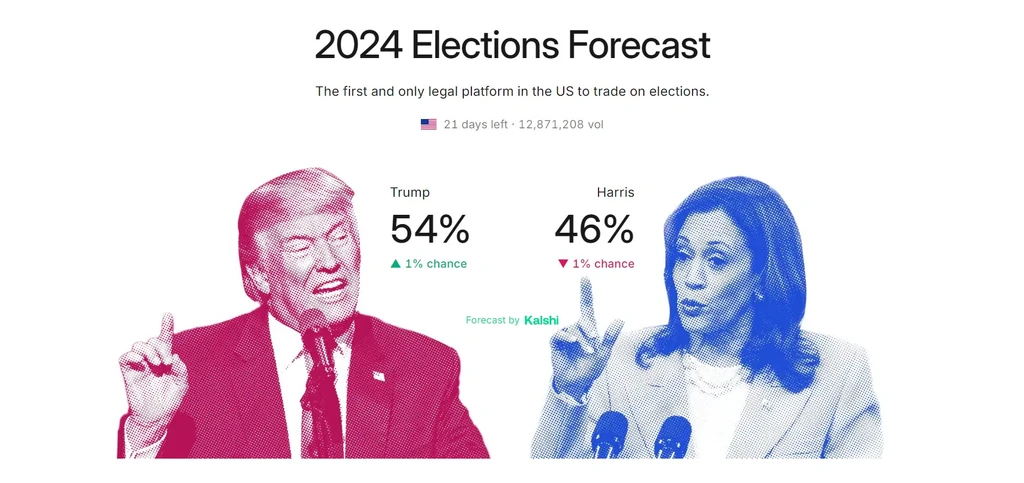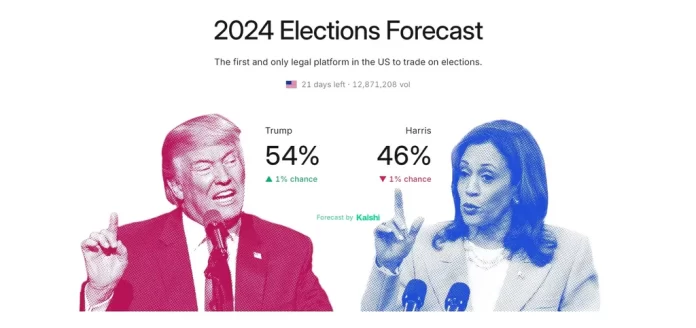Kalshi was first cleared to resume its election trading 2 October. A three-judge panel for the US Court of Appeals for the District of Columbia affirmed a lower court’s ruling that the Commodity Futures Trading Commission (CFTC) overstepped its authority in halting the contracts last year.
The CFTC has argued vehemently that the contracts will adversely affect election integrity. But the appeals court ruled the commission did not give sufficient evidence for this claim. Judges pointed to the fact that the commission could have implemented explicit election bans but has never done so.
Conversely, Kalshi made arguments that are similar in nature to that of legalised sports betting. The company argues that trading is already being done on grey-market, unregulated platforms; it argues that the concrete data from the contracts will be “a powerful tool” to fight election misinformation; and it argues that the ability to stake money on elections will drive civic engagement.
Event futures contracts: Betting or trading?
The New-York based Kalshi is a derivatives exchange and not a wagering operator. But its primary offering, event futures contracts, are difficult to extricate from gambling, hence the regulatory scrutiny.
On its website, Kalshi calls event contracts “a new type of asset class” that allows for trading on yes/no questions. Interested speculators can purchase contracts tied to event outcomes. The exchange then matches each contract with another from the opposite side. Thus Kalshi is not the “house,” and it profits on trading commissions. Nowhere are the words “betting” or “gambling” mentioned.
Yet on Investopedia, authors are quick to mention the discrepancies. Unlike “traditional event contracts,” like those tied to commodities, the site lists “speculators/bettors” as the primary traders of event contracts.
“The existence of these products is contentious, and for good reason,” they wrote. “There have always been event contracts, but they were considered gambling and barred in the United States. In countries where they are allowed, as in the United Kingdom, they fall under their gambling laws.”
On the legal wagering side, there are several exchange-type betting marketplaces that allow bettors to trade wagers. Examples include Sporttrade, WagerWire and Prophet Exchange. Such platforms have had a tough time obtaining regulatory approval thus far.
Several million $ worth of Kalshi contracts now trading
It doesn’t take long to see the progress that Kalshi has made since the ruling earlier this month. The “election” section now features dozens of futures, the most prominent of which is the winner of the presidential election.
Republican nominee Donald Trump currently leads Democratic nominee Kamala Harris by a 54%-46% margin on Kalshi. The site indicates that there have been more than $7.1m (£5.4m/€6.5m) worth of contracts placed on that market alone.

Beyond that, there are now dozens of other political listings. They range from presidential election outcomes in individual states to in-state elections and more.
A review of the other offerings indicates that at least $5m has been staked on other contracts. Other popular offerings include:
- Winner of the popular vote ($788,000)
- Electoral college margin of victory ($682,000)
- Popular vote and electoral college ($382,000)
- Popular vote margin of victory ($367,000)
The company is also wasting no time getting its message out there. “Vegas Pauly C,” a Las Vegas “influencer” with over 350,000 social media followers, 12 October posted his first-ever sponsored video, with Kalshi as the sponsor.
Original article: https://igamingbusiness.com/finance/kalshi-event-contract-politics/














